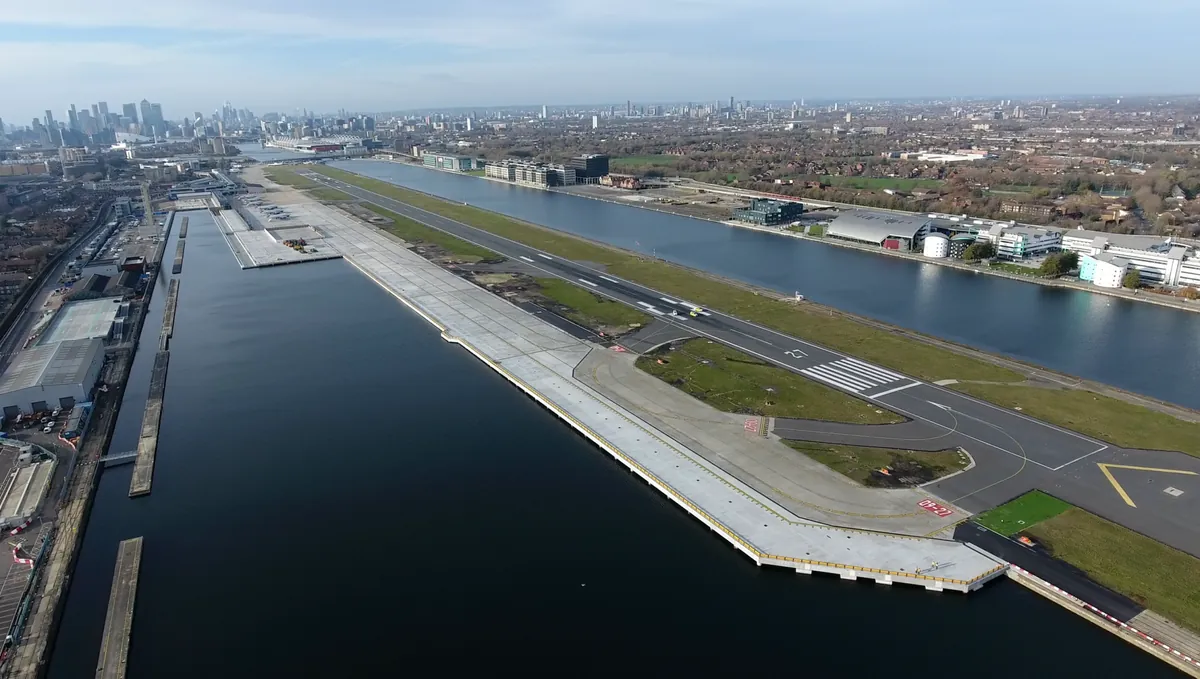Labour's Airport Expansion Stance Sparks Internal Debate and Environmental Concerns
Labour's support for London City Airport expansion signals potential shift in infrastructure policy, raising questions about future projects and environmental impact. Party faces internal opposition and balancing act between economic growth and climate goals.

Labour's recent endorsement of London City Airport's expansion has ignited a debate that extends far beyond the confines of East London. This decision, which overrides local party members' objections, marks a significant shift in the party's approach to infrastructure projects that promise economic benefits but raise environmental concerns.
The expansion plan aims to increase London City Airport's annual capacity by 2.5 million passengers, representing a nearly 40% growth. This move aligns with Labour's stated commitment to prioritize economic growth, as emphasized by Chancellor Rachel Reeves in her pre-election statements.

However, this stance has met resistance from within the party. Ruth Cadbury, MP for Brentford and Isleworth, expressed opposition to any measures that would ease flight restrictions at Heathrow Airport. She stated, "The Government has set firm rules on noise, pollution, and climate impact, and there is no way that a third runway could ever comply with those."
Similarly, John McDonnell, whose constituency includes Heathrow, warned of "huge resistance" to any revival of third runway proposals. He emphasized the potential for Heathrow to become a symbolic battleground in the fight against climate change.
"Heathrow will become the iconic battleground of the campaign, not just in the UK but across Europe, to prevent climate catastrophe."
The debate surrounding airport expansion highlights the complex interplay between economic growth and environmental protection. The UK aviation industry supports over 1 million jobs and contributes £22 billion to the economy annually. However, aviation also accounts for about 2% of global CO2 emissions, posing a challenge to the UK's target of achieving net-zero carbon emissions by 2050.
Heathrow Airport, Europe's busiest by passenger traffic, is preparing fresh proposals for a third runway. The airport recently surpassed its pre-pandemic passenger numbers, handling 82.2 million travelers in the 12 months through July 2024. Meanwhile, Gatwick Airport, the world's busiest single-runway airport, is advancing plans to convert a taxiway into a full runway, potentially increasing its annual capacity to 75 million passengers by the late 2030s.
Labour has outlined four conditions for supporting airport expansion: addressing air and noise pollution, managing carbon emissions, and ensuring nationwide economic benefits. However, critics argue that these criteria are open to interpretation and may not provide sufficient environmental safeguards.
As the debate unfolds, Labour faces the challenge of balancing its economic growth agenda with environmental commitments and internal party dynamics. The party's stance on airport expansion could become a litmus test for its approach to infrastructure development and climate policy in the coming years.


































